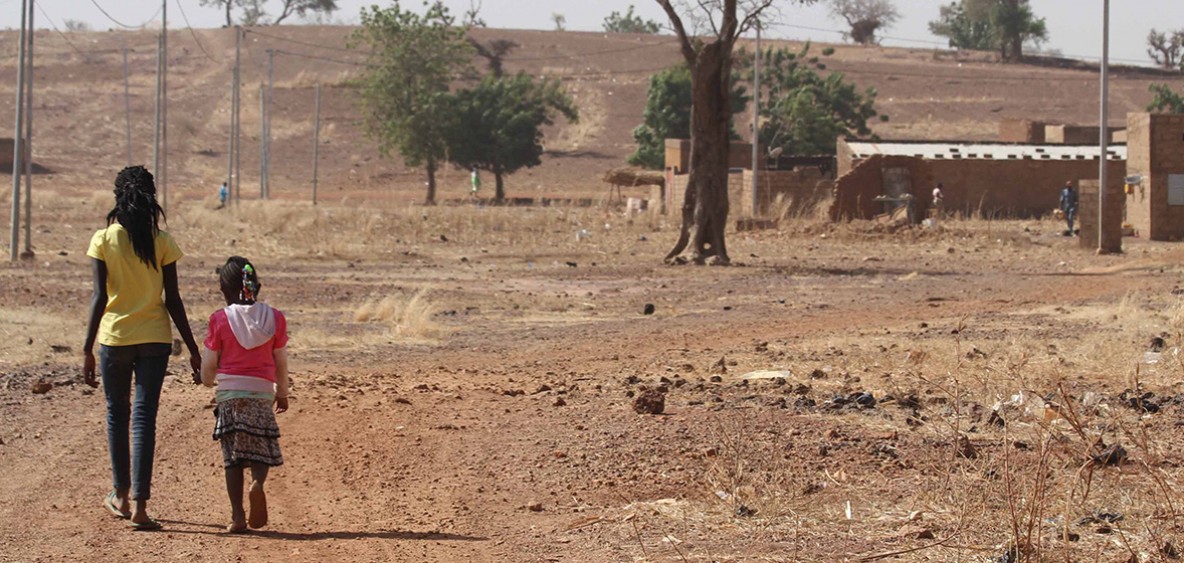
In September 2019, the Government of Burkina Faso, with support from the RFS country project team, organised a workshop to share the experience of Burkina Faso in setting and integrating LDN targets with representatives from Niger and Senegal.
Since the prolonged droughts of the 1970s and 1980s, Burkina Faso has suffered from widespread land degradation and desertification, resulting in famine, poverty, and mass migration. Over 9 million hectares of Burkina Faso’s productive land is degraded, one-third of the country’s total area. Climate change is placing increasing pressure on existing arable land as rainfall decreases, temperatures rise, and droughts and floods become more frequent. Population growth and human action—deforestation and unsustainable agricultural practices—exacerbate the problem.
Given the severity of the issue, and its broad impact on Burkina Faso’s development trajectory, the Government of Burkina Faso has taken several important steps at the national level to prioritise the mitigation of land degradation. This political momentum includes the recent national commitment to voluntary targets to achieve Land Degradation Neutrality (LDN) by 2030.
The concept of LDN first emerged from the UN Conference on Sustainable Development (Rio+20) in 2012. In 2015, the United Nations Convention to Combat Desertification (UNCCD COP12) formally adopted a LDN target: “All countries will now formulate voluntary targets to achieve LDN according to their specific national circumstances and development priorities…”. Following UNCCD COP12, the LDN initiative was fully integrated with the broader framework of the Sustainable Development Goals as target 15.3 under SDG 15 “Life on Land”.
Since the international community embraced the idea of LDN, Burkina Faso has been active in setting national voluntary targets: the country commits to reaching LDN by 2030 by restoring 5 million hectares of land, at an estimated cost of USD 2.7 billion. The Government of Burkina Faso has also been active in establishing the LDN baseline, disaggregating national targets at regional levels, and integrated measures to achieve LDN into national planning frameworks, including, most recently, the National Program for the Rural Sector (PNSR II).
As part of this process, in September 2019, the Permanent Secretariat for the Coordination of Sectoral Agricultural Policies (SP/CPSA), with support from the RFS country project team, organised a workshop to share the experience of Burkina Faso in setting and integrating LDN targets within national planning frameworks. The workshop was also attended by delegations from Niger and Senegal, who shared experiences and lessons learned from initiatives that are contributing to LDN within their respective countries.
During the workshop, participants also conducted a field visit to the farm of Mr. Yacouba Sawadogo, a Burkinabe farmer who has successfully created roughly 40 hectares of forest with more than 60 species of trees on previously barren land. In 2018, Mr Sawadogo received the Right livelihood Award, also known as the Alternative Nobel Prize, for his work in restoring degraded land, creating a thriving agro-ecosystem, and inspiring other farmers in the Sahel to do the same. The visit allowed participants to see, first-hand, what is possible with a bit of perseverance and determination.
After sharing and analysing the experiences of all three countries, and visiting Mr. Sawagodo, the delegations formulated several key recommendations for Sahel countries looking to integrate LDN targets into actionable plans and strategies. Key recommendations included:
The delegations expressed their commitment to integrating these recommendations within the LDN processes and action plans of all countries involved. The workshop made great strides in fostering an environment of collaboration in fighting the common challenge of land degradation in the Sahel and open the door for further cooperation and knowledge exchange in the future.
Subscribe to our monthly newsletter to receive updates on stories directly from the field across all our projects, upcoming events, new resources, and more.